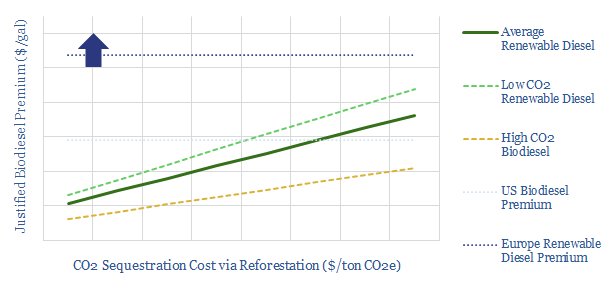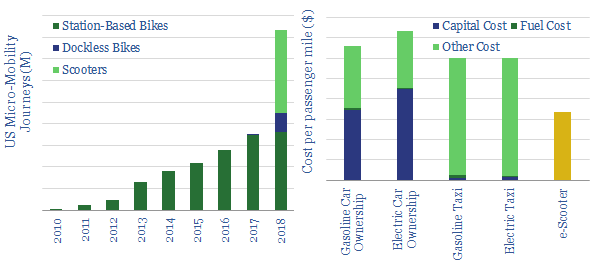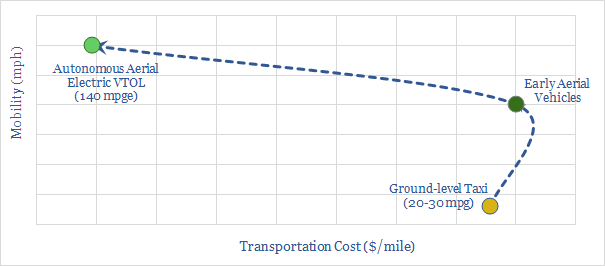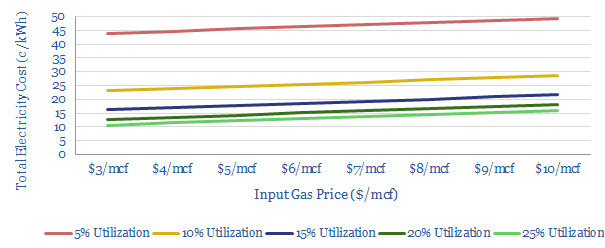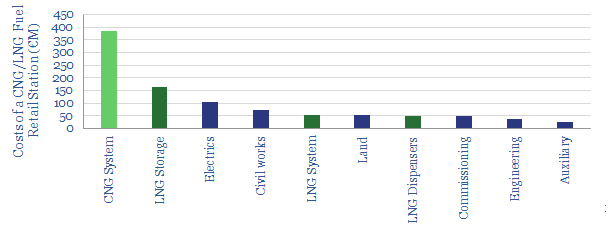-
Carbon Offsets vs Renewable Diesel?
Could the rise of reforestation initiatives erode the value of renewable diesel? This data-file calculates purchasing CO2-credits to decarbonise diesel could cost 60-90% less than purchasing renewable diesel, at current pricing. Economically justified premia for biofuels are calculated.
-
Energy Economics of e-Scooters
This workbook contains all our modelling on the energy economics of e-scooters; a transformational technology for urban mobility. Included are our projections of per-mile costs, energy-economics, battery charging times, new electricity demand and displacement of oil demand.
-
Aerial Vehicles: why flying cars fly
Aerial vehicles will do in the 2020s what electric vehicles did in the 2010s. They will go from a niche technology, to a global mega-trend that no forecaster can ignore. These conclusions stem from a deep-dive analysis into the technology, the fuel economies and the costs, all of which will be transformational. This 20-page written-insight…
-
Fast-charge the electric vehicles with gas?
There is upside for natural gas, as EV penetration rises: we model that gas turbines can economically power fast-chargers for 13c/kWh. Carbon emissions are lowered by c70% compared with oil. And the grid is spared from power demand surges. Download our data-file to stress-test the sensitivities.
-
Costs of an LNG fuelling station
We have tabulated the costs of constructing an LNG-fuelling station across 55 cost lines, totalling €1M/site. c$10/mcf may be added to the cost of gas as a fuel.
Content by Category
- Batteries (87)
- Biofuels (42)
- Carbon Intensity (49)
- CCS (63)
- CO2 Removals (9)
- Coal (38)
- Company Diligence (90)
- Data Models (816)
- Decarbonization (159)
- Demand (108)
- Digital (56)
- Downstream (44)
- Economic Model (197)
- Energy Efficiency (75)
- Hydrogen (63)
- Industry Data (273)
- LNG (48)
- Materials (79)
- Metals (71)
- Midstream (43)
- Natural Gas (146)
- Nature (76)
- Nuclear (22)
- Oil (162)
- Patents (38)
- Plastics (44)
- Power Grids (123)
- Renewables (149)
- Screen (112)
- Semiconductors (30)
- Shale (51)
- Solar (67)
- Supply-Demand (45)
- Vehicles (90)
- Wind (43)
- Written Research (345)
